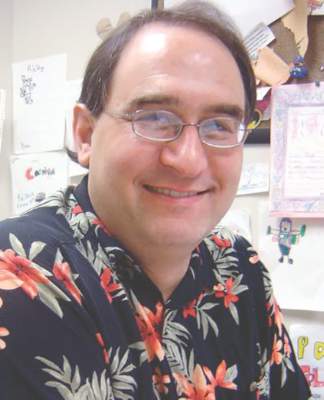User login
Every 3 months I get a letter from the state, showing me how my controlled prescriptions stack up against those of other neurologists here.
I’ve always been in the “normal” range. Which is good, I guess. In this era, no one wants to be seen as running a pill mill.
But when I compare them over the last year, I notice that my narcotic prescriptions have been gradually declining. Am I reducing my scripts subconsciously, knowing that I’m being watched by regulatory agencies?
It’s quite possible. While I haven’t intentionally been cutting back on narcotics, I have been paying closer attention to who I’m writing them for. This has likely led me to use them more sparingly.
The trouble is that pain is a legitimate problem for many, and NSAIDs have numerous safety issues that limit their use. Acetaminophen has hepatic issues. My previous noncontrolled drug of choice, Tramadol, was reclassified as controlled in 2014.
Narcotic abuse and diversion are serious problems that need attention. But there are also people with legitimate noncancer pain who require them to function with a reasonable quality of life. We all have them in our practice. Sorting them out from abusers is never easy.
Unfortunately, the increased vigilance also affects those who need our help. A recent National Public Radio article noted the difficulty of finding a doctor in Montana who is willing to take on pain patients, with the result that some have to travel out of state to get help.
I’m sure they’re not the only ones, especially in states that have a low population density. And not all patients are going to have the financial resources to travel. Or afford the rates of the dwindling number of physicians willing to frequently prescribe narcotics. These people sadly become collateral damage in the drug wars.
Does this mean I’m going to increase my use of narcotics to help all who come to me? No.
Because, in a world where my licensure (and therefore livelihood) is potentially affected by my prescribing habits, I have to put my family first. This doesn’t mean I’m abandoning any of my current or even future patients, but it does mean I’ll be more vigilant on every controlled script I write.
I don’t know anyone who’d do otherwise in today’s climate.
Dr. Block has a solo neurology practice in Scottsdale, Ariz.
Every 3 months I get a letter from the state, showing me how my controlled prescriptions stack up against those of other neurologists here.
I’ve always been in the “normal” range. Which is good, I guess. In this era, no one wants to be seen as running a pill mill.
But when I compare them over the last year, I notice that my narcotic prescriptions have been gradually declining. Am I reducing my scripts subconsciously, knowing that I’m being watched by regulatory agencies?
It’s quite possible. While I haven’t intentionally been cutting back on narcotics, I have been paying closer attention to who I’m writing them for. This has likely led me to use them more sparingly.
The trouble is that pain is a legitimate problem for many, and NSAIDs have numerous safety issues that limit their use. Acetaminophen has hepatic issues. My previous noncontrolled drug of choice, Tramadol, was reclassified as controlled in 2014.
Narcotic abuse and diversion are serious problems that need attention. But there are also people with legitimate noncancer pain who require them to function with a reasonable quality of life. We all have them in our practice. Sorting them out from abusers is never easy.
Unfortunately, the increased vigilance also affects those who need our help. A recent National Public Radio article noted the difficulty of finding a doctor in Montana who is willing to take on pain patients, with the result that some have to travel out of state to get help.
I’m sure they’re not the only ones, especially in states that have a low population density. And not all patients are going to have the financial resources to travel. Or afford the rates of the dwindling number of physicians willing to frequently prescribe narcotics. These people sadly become collateral damage in the drug wars.
Does this mean I’m going to increase my use of narcotics to help all who come to me? No.
Because, in a world where my licensure (and therefore livelihood) is potentially affected by my prescribing habits, I have to put my family first. This doesn’t mean I’m abandoning any of my current or even future patients, but it does mean I’ll be more vigilant on every controlled script I write.
I don’t know anyone who’d do otherwise in today’s climate.
Dr. Block has a solo neurology practice in Scottsdale, Ariz.
Every 3 months I get a letter from the state, showing me how my controlled prescriptions stack up against those of other neurologists here.
I’ve always been in the “normal” range. Which is good, I guess. In this era, no one wants to be seen as running a pill mill.
But when I compare them over the last year, I notice that my narcotic prescriptions have been gradually declining. Am I reducing my scripts subconsciously, knowing that I’m being watched by regulatory agencies?
It’s quite possible. While I haven’t intentionally been cutting back on narcotics, I have been paying closer attention to who I’m writing them for. This has likely led me to use them more sparingly.
The trouble is that pain is a legitimate problem for many, and NSAIDs have numerous safety issues that limit their use. Acetaminophen has hepatic issues. My previous noncontrolled drug of choice, Tramadol, was reclassified as controlled in 2014.
Narcotic abuse and diversion are serious problems that need attention. But there are also people with legitimate noncancer pain who require them to function with a reasonable quality of life. We all have them in our practice. Sorting them out from abusers is never easy.
Unfortunately, the increased vigilance also affects those who need our help. A recent National Public Radio article noted the difficulty of finding a doctor in Montana who is willing to take on pain patients, with the result that some have to travel out of state to get help.
I’m sure they’re not the only ones, especially in states that have a low population density. And not all patients are going to have the financial resources to travel. Or afford the rates of the dwindling number of physicians willing to frequently prescribe narcotics. These people sadly become collateral damage in the drug wars.
Does this mean I’m going to increase my use of narcotics to help all who come to me? No.
Because, in a world where my licensure (and therefore livelihood) is potentially affected by my prescribing habits, I have to put my family first. This doesn’t mean I’m abandoning any of my current or even future patients, but it does mean I’ll be more vigilant on every controlled script I write.
I don’t know anyone who’d do otherwise in today’s climate.
Dr. Block has a solo neurology practice in Scottsdale, Ariz.

